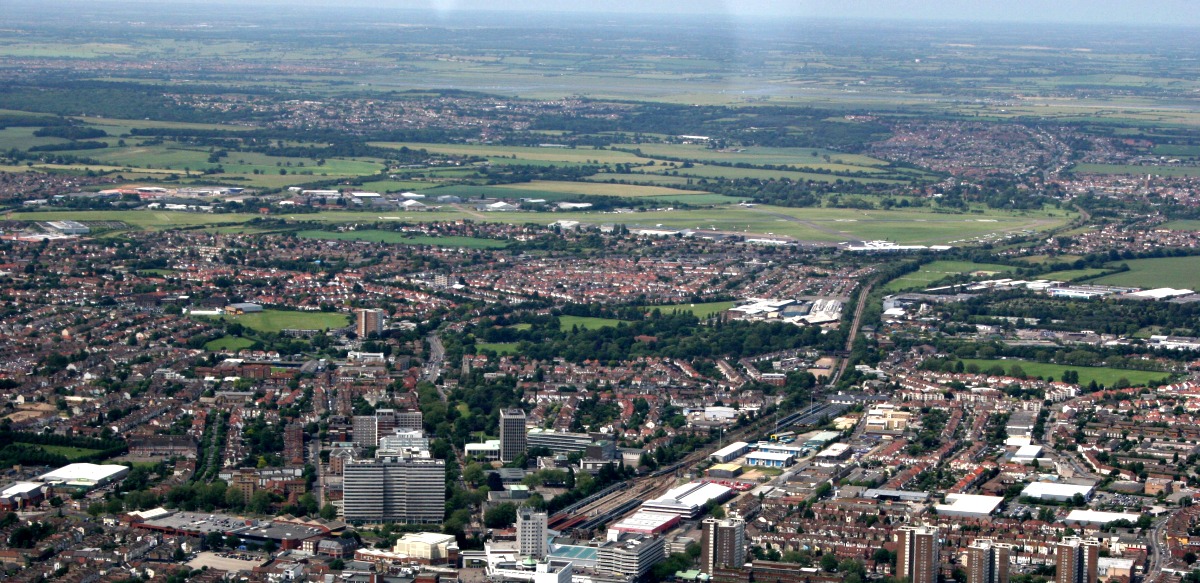In the run up to a November event Robin Grey makes the case for urban and rural communities to work together to tackle land rights, ownership and usage
30 August 2016
 Today, as a country, we face huge problems – widening inequality, a chronic housing crisis, a dysfunctional agricultural system, multiple public health issues and impending climate collapse. Land use is one of the root causes of these problems but is rarely discussed. Indeed, land has been the elephant in the room of English politics for so long we have become accustomed to its absence during important debates.
Today, as a country, we face huge problems – widening inequality, a chronic housing crisis, a dysfunctional agricultural system, multiple public health issues and impending climate collapse. Land use is one of the root causes of these problems but is rarely discussed. Indeed, land has been the elephant in the room of English politics for so long we have become accustomed to its absence during important debates.
The fundamental importance of land becomes clear when you start reframing common questions about the key issues affecting society today:
1. The housing crisis is partly caused by patterns of land ownership that prevent us building enough new, affordable homes
Britain has the second highest concentration of land ownership in the world with 0.36% of the population owning two-thirds of the land. Despite claims we are running out of land, a recent Office For National Statistics report found that a mere 2% of our country is built on. So is the housing crisis caused by an increasing population or should we be tackling patterns of land ownership that prevent the building of new homes?
2. The rising cost of land is directly linked to policies that make it lucrative to hoard land and treat it as an investment
Agricultural land is currently seen as safer and more lucrative than stocks and shares, and a way of avoiding tax, regardless of whether it is even being used for farming – indeed prices have trebled in the last ten years. In some parts of the country, landowners see their land increase in value more than a hundred fold just for securing permission to build housing. How can land and housing prices be brought under control when government policies and market speculation actively drive them up?
3. Inequality finds its oldest expression in the clash between the landed and the poor
A third of UK land is still owned by the traditional aristocracy and landed gentry. 47 wealthy landowners each receive over a million pounds a year in land subsidies, whilst the smallest farms receive nothing. How can we develop a more equal society, whilst giving massive tax breaks and public money to large landowners, at the same time as cutting back on support and services for those in need?
4. Many public health issues are directly linked to trends in land use
Recent studies have connected issues like cancer, respiratory disease, and poor mental health with city living. Cash-strapped councils have started to sell off public parks and playing fields to plug funding gaps. Tate and Lyle Sugar have received more in agricultural subsidies than any other UK organisation this century. How can we tackle obesity and other health issues whilst subsidies flood the market with low quality, cheap food, and people are disconnected from the outdoors?
5. Environmental decline is directly linked to mainstream land management
British soils are at a crisis point. Industrial farming methods, deforestation, and land cleared for sport shooting, have all been linked with floods that have devastated the UK in recent years. How can we tackle environmental issues whilst subsidising the industrial farming techniques that help cause them?
In short, the status quo benefits the few at the expense of the common good. So how do we address this imbalance? One answer is to support the coming together of all groups who have a stake in this fight, be that urban housing and planning advocates, rural land and farming communities, health campaigners or climate change activists.
What sort of conversations would residents of a council estate up for redevelopment have with a young farmer? What common ground would be found between people campaigning for less sugar in our diets and people campaigning to reduce the negative environmental impacts of farming? What can an urban planning expert learn from people campaigning to protect our public footpaths in areas of natural beauty, and vice-versa.
Finding common issues
These groups, and indeed the population as a whole, share a common issue – that land is not being used for the common good. They also share potential campaign targets – the planning system, land-based subsidies, and transparency and distribution of ownership, to name just a few.
Who knows what else they share? Up to now there has been little overlap between these groups, and almost no focus on land as a common issue. Framing our struggles in terms of land rights, ownership and usage, will allow us to find much in common with a wide range of people.
Building a movement
This autumn a coalition of activist networks and organisations are coming together to begin building a movement, hosting events under the banner of ‘Land For What?’. We aim to raise awareness of land as a common struggle. This will mean increasing people’s knowledge about land ownership and the history of land struggles; connecting people to share skills and experiences; and inspiring people and groups to take learning and energy for change back to their communities.
The coalition includes the Community Food Growers Network, Just Space, Landworkers’ Alliance, New Economics Foundation, Radical Housing Network, London Quaker Housing, Shared Assets and Ubele. Please join us.
‘Land for What?’ will take place 12-13 November 2016, London